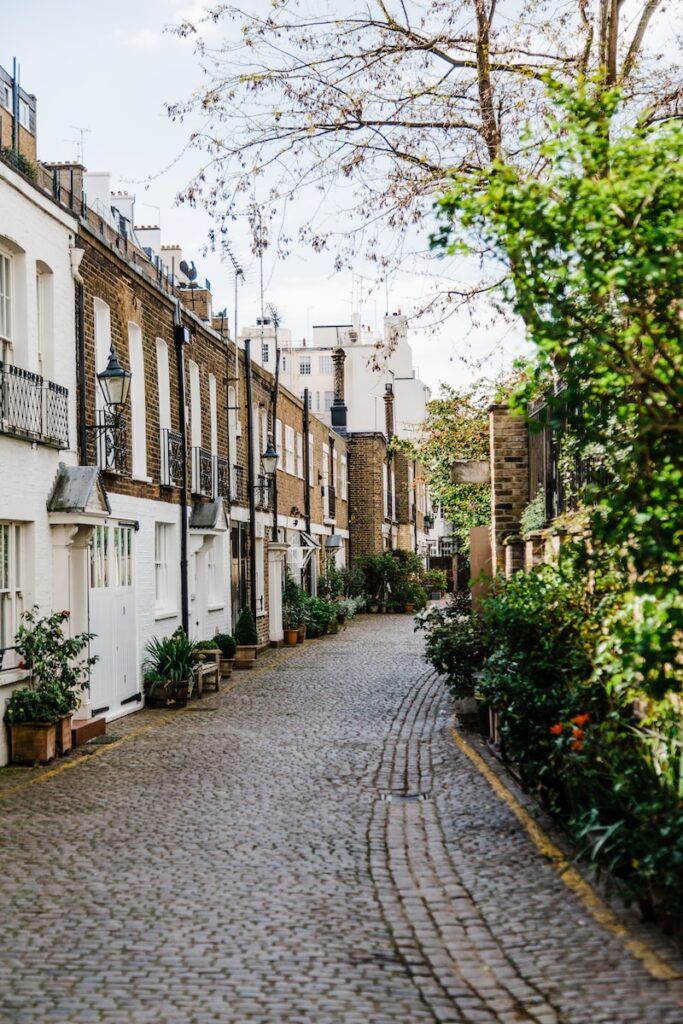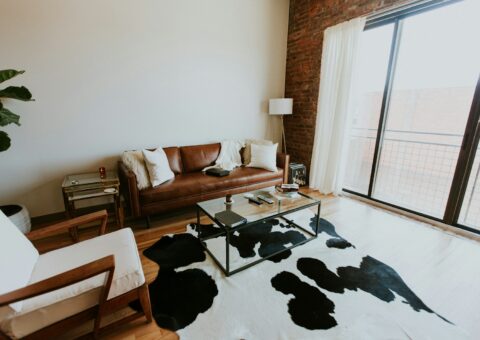Renting out a Property for the First Time UK: Things to Consider
Hello there, UK landlords! Ready to dip your toes into the rental market? Whether you’ve just closed the deal on a chic city flat or you’re considering turning an existing property into a lucrative rental, we’ve got the scoop to help you navigate this exciting journey. Renting out your flat can be a fantastic way to earn some extra income and make the most of your investment. But let’s be real – it can also feel a bit like venturing into the unknown, especially if you’re new to the game.
Don’t worry, though, because that’s where we come in. We’ve put together this handy guide filled with top tips to help you rent out your flat in the UK. From setting up your flat to dealing with tenants (even the tricky ones!), we’ve got you covered. So grab a cup of tea, sit back, and let’s dive into the world of rentals together!
Preparing your flat
First impressions matter, and this is especially true when it comes to letting your flat. Before you even begin to advertise your property, it’s essential that it’s in tip-top shape, ready to impress potential tenants. This includes ensuring the flat is clean, carrying out necessary safety checks, and completing any required repairs or renovations.
Starting with cleanliness, it’s worth investing in a professional cleaning service. A spotless flat not only makes it more appealing but also sets the standard of cleanliness for your tenants.
Safety checks are another crucial aspect. Make sure all electrical installations, gas appliances, and fire safety equipment are up to standard. Regularly test smoke and carbon monoxide alarms, too.
Lastly, address any repairs or renovations that may be required before the tenants move in. From fixing leaking taps to repainting walls, these small improvements can significantly increase the rental appeal of your flat.
Now that we have the basics out of the way, let’s move on to the next section, where we will discuss the pros and cons of furnished versus unfurnished flats.
Furnished vs Unfurnished Flats: How to decide
Deciding whether to rent your flat furnished or unfurnished isn’t always straightforward. Both options have their advantages and disadvantages:
Furnished Flats
- Pros:
- Attract a wider range of tenants, including students, young professionals, or those relocating for work who prefer ‘ready-to-live-in’ spaces.
- Can command a higher rental income due to the added convenience and immediate livability.
- You might be eligible for tax deductions for wear and tear of the furniture.
- Cons:
- The initial cost to furnish the flat can be high, and there will also be ongoing costs for maintenance or replacements.
- There’s a risk of damage to the furniture, which could require costly repairs or replacements.
- Potential disputes over damage to furniture at the end of the tenancy.
Unfurnished Flats
- Pros:
- Less responsibility and lower costs as you don’t have to provide, maintain, or replace furniture.
- Tenants have the flexibility to personalise the space to their liking.
- Lower risk of damage to landlord-provided items.
- Cons:
- It might take longer to find a tenant as many prefer the convenience of moving into a furnished flat.
- Potentially lower rent compared to furnished flats.
- Tenants may request permission to make alterations to accommodate their furniture.
Choosing between a furnished or unfurnished flat depends on your target tenant market, your budget, and how much responsibility you’re willing to assume as a landlord. Regardless of your choice, a well-prepared flat is key to attracting and retaining quality tenants.

Understanding the Rental Market in the UK
Understanding the rental market, particularly the average rents in different UK cities, is crucial when preparing your flat for rent. This knowledge can help you price your flat competitively and attract the ideal tenants.
As of August 2023, the average rents in various UK cities show a diverse range:
- In London, the average rent ranges between £1,300 and £3,200, depending on the location.
- Edinburgh has an average rent of £2,620, while Oxford and Cambridge follow closely with £2,577 and £2,492, respectively.
- The UK’s average rent is £968 per home, while a one-bedroom flat averages £758.
- In Yorkshire and Humberside, the average rent is £535.
- The least expensive city to rent in is Stoke, where the average rent price for a 3-bedroom flat is £843 per month.
Now, let’s discuss some tips on how to price your flat competitively within the local market:
- Research Comparable Properties: Look at similar properties in your neighbourhood that are currently for rent or have recently been rented. This will give you a ballpark figure for what tenants are willing to pay.
- Consider Your Property’s Unique Features: If your flat has unique features like a renovated kitchen, extra storage space, or a great view, these can justify a slightly higher rent.
- Keep an Eye on the Market: Rental markets can fluctuate based on supply and demand, economic conditions, and even seasons. Regularly reviewing your rent against the market can ensure it remains competitive.
- Factor in Your Costs: While it’s essential to stay competitive, you also need to cover your costs. This includes mortgage payments, insurance, taxes, maintenance costs, and any fees associated with property management.
Remember, pricing your flat correctly from the start can help attract the right tenants and minimize vacancies, contributing to a successful rental experience.
Choosing Your Rental Terms
When renting out your flat, deciding on the rental terms is a crucial step. The duration of the lease can either be daily, monthly, or long-term, each with its own advantages and disadvantages. Let’s delve into the differences among these rental terms:
Daily Rentals:
- Flexibility: Daily rentals offer the most flexibility, as tenants can book for short periods. This can be appealing to tourists or business travelers.
- Cost: Daily rentals often have higher rates compared to long-term leases, potentially leading to higher income.
- Income Stability: However, the income can be unstable due to seasonal demand and competition.
- Maintenance: Frequent tenant turnover means more cleaning and maintenance.
- Legal Considerations: Some local laws limit the ability to rent property on a daily basis.
Monthly Rentals:
- Flexibility: Monthly rentals provide a balance between flexibility and stability. They’re ideal for tenants seeking short-term accommodation without committing to a longer lease.
- Cost: While the rent might be lower than daily rentals, it’s usually higher than long-term leases.
- Income Stability: Monthly rentals can provide a more stable income than daily rentals, but less so than long-term leases.
- Maintenance: Maintenance needs are lesser than those for daily rentals but more frequent compared to long-term leases.
Long-term Rentals:
- Flexibility: Long-term rentals (usually 6 months to a year or more) offer less flexibility but provide the most stability.
- Cost: The rental rate is usually lower, but a steady income is assured for the duration of the lease.
- Income Stability: There’s a guarantee of income for the length of the lease, providing financial stability.
- Maintenance: Less frequent turnovers mean fewer maintenance tasks.
- Legal Considerations: These rentals typically require comprehensive lease agreements outlining the duties and rights of both parties.
When setting rental terms and policies, consider the following:
Cancellation Policies: A clear cancellation policy protects you from sudden tenant departures. For example, you may require a 30-day notice period for lease terminations.
Deposit Requirements: Security deposits offset costs if a tenant causes damage or leaves without paying rent. Typically, this is equivalent to one month’s rent, but it can vary based on local laws and the property’s condition.
Pet Policies: If you allow pets, specify the types allowed, any size or breed restrictions, and whether an additional pet deposit is required.
Your rental terms should reflect your goals as a landlord, the property’s condition, and the local market conditions. Always consult with a real estate attorney when drafting rental agreements to ensure legal compliance.
Letting your property for the first time in the UK
Complying with legal obligations is crucial when letting a property in the UK. Landlords must ensure the property is safe and habitable, and falling short could lead to fines or legal action. Familiarising oneself with Fair Housing Laws and local landlord-tenant laws can help navigate this potential minefield. When in doubt, seeking advice from a property law solicitor can be beneficial.
Now, here are some nuggets of advice for first-time landlords:
- Treat Your Rental Like a Business: Keep accurate records, maintain professionalism, and stay organised. Remember, this isn’t just a home; it’s a business venture.
- Foster Positive Landlord-Tenant Relationships: A positive relationship with tenants can make the letting journey smoother. Be respectful, responsive, and fair, as a satisfied tenant is more likely to care for your property and stay longer.
- Consider Hiring a Property Manager: If managing landlord duties becomes overwhelming, hiring a property manager could be a great solution. They can handle tasks such as tenant screening, rent collection, and property maintenance.
Register as a Landlord: Depending on your property’s location in the UK, you may need to register as a landlord. Check with your local council for specific requirements.

Legal Responsibilities of UK Landlords
Picking up the mantle of a landlord in the UK comes with a set of legal responsibilities. Think of it as the rulebook for your new adventure in property letting – a bit daunting, perhaps, but absolutely essential for a smooth and successful journey.
Property Maintenance
First off, as a landlord, it’s your duty to ensure that the property is safe and habitable for your tenants. This includes carrying out necessary repairs and maintenance, ensuring all gas and electrical equipment is safely installed and maintained, providing an Energy Performance Certificate (EPC) for the property, and protecting the tenant’s deposit in a government-approved scheme. It’s akin to being the captain of a ship, making sure everything’s shipshape for a smooth voyage.
Right to Rent Checks
Next in line are the ‘Right to Rent’ checks. Before letting a property in the UK, landlords are required to check that all adult tenants have the right to rent residential property in the country. Imagine it as being the gatekeeper, ensuring only those with valid passes can enter.
HMO Licensing
If your property is a House in Multiple Occupation (HMO), you may need to secure a licence from your local council. HMOs are properties where at least three tenants live, forming more than one household, and share toilet, bathroom, or kitchen facilities. It’s like having a special permit to operate a unique kind of property.
Fire and Safety Regulations
Finally, there’s no forgetting fire and safety regulations. As a landlord, you must adhere to fire safety regulations. This includes installing a smoke alarm on each storey and a carbon monoxide alarm in rooms with a solid fuel-burning appliance. Additionally, all furniture and furnishings must meet fire resistance requirements. Think of it as your superhero duty to protect your tenants and keep them safe.
Adhering to these responsibilities isn’t just about avoiding potential legal issues; it’s also about creating a positive rental experience for your tenants. After all, a happy tenant makes for a happy landlord. So, embrace these duties with open arms, and you’ll be well on your way to mastering the art of property letting in the UK!
Marketing Your Property
Stepping into the world of property letting is a bit like entering a bustling marketplace. There’s a myriad of platforms where you can showcase your property, each with its own unique crowd. The trick? Knowing where to set up your stall and how to make it stand out.
Choosing the Right Platform
Now, not all platforms are created equal. If you’ve got a furnished property ready to welcome tenants, then Homelike is your go-to platform. Think of it as a swanky department store for furnished properties. It’s an online booking platform for travellers seeking high-quality, monthly rental accommodations. Your plush sofa and top-notch coffee machine won’t go unnoticed here!
On the other hand, if your property is unfurnished and waiting for tenants to add their personal touch, Rightmove and Zoopla are your best bets. These platforms are like the high streets of property letting, attracting a wide range of potential tenants browsing for their next home.
Creating Compelling Listings
Once you’ve chosen your platform, it’s time to create a listing that grabs attention. First things first, take high-quality photos. A picture speaks a thousand words, so make sure your photos are telling the story of a comfortable, inviting home. And don’t forget to include all rooms, even the less glamorous ones like the bathroom and kitchen.
Next, write a captivating description. Highlight the unique features of your property, whether it’s a sunny balcony, a cosy fireplace, or proximity to local amenities. Be honest, but also sell the dream. Remember, you’re not just offering a property; you’re offering a lifestyle.
Finally, price it right. Too high, and you might deter potential tenants; too low, and you could undervalue your property. Do your homework, check out similar listings in your area, and aim for a competitive yet fair price.
Marketing Tips
Don’t forget to keep your listing updated and promptly respond to enquiries. Good communication is key to winning over potential tenants. And why not go the extra mile? Consider creating a virtual tour or sharing local insights about the neighbourhood. It’s these little touches that can make your property stand out in the crowd.
Marketing your property effectively is all about understanding your audience, showcasing your property’s strengths, and providing excellent customer service. With these strategies in your landlord toolkit, you’re ready to make a splash in the property letting market. Happy renting!






















